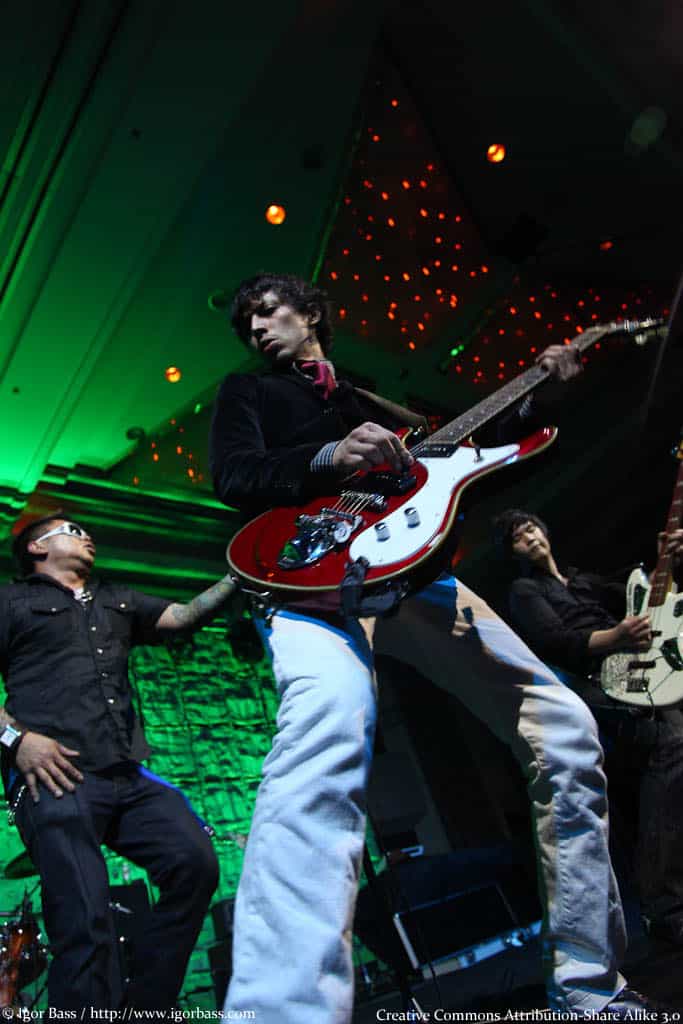After a struggle that took four years and two appeals to the Court of Appeals for the Federal Circuit (CAFC), Simon Tam has been awarded a trademark for The Slants, the name of his “Chinatown Dance Rock” band.
Tam and company, based in Portland, have been busy recording music and playing gigs, but without trademark protection.
The court’s ruling is likely to be felt in a much higher profile trademark case — the government’s efforts to strip the Washington Redskins of their trademark protection.
Denial at the Patent and Trademark Office
Tam applied for a trademark for The Slants in November, 2011. The examiner denied the trademark under 15 U.S.C. § 1052(a), which prohibits the registration of a trademark if it may
disparage or falsely suggest a connection with persons, living or dead, institutions, beliefs, or national symbols, or bring them into contempt, or disrepute…
The examiner denied the registration, because he felt it was disparaging to people who are of Asian descent.
Tam explained that the group was trying to “reclaim” the term, to show pride in the members’ Asian heritage.
The examiner didn’t buy Tam’s argument, and the Trademark Trial and Appeal Board upheld the examiner’s denial, ruling that since the term had long been used in a derogatory fashion based on Asian features, many people from an Asian background would find the term offensive.
CAFC Round One
Tam appealed to the Federal Circuit. His argument was that the law in question (§2a for short) was unconstitutional because it violated the First Amendment’s guarantee of free speech.
In April, 2015, relying largely on 1981’s McGinley case, the court upheld the Trademark Trial and Appeal Board’s denial of the trademark. The court held that Tam wasn’t prohibited from using the name “The Slants,” so there was no First Amendment issue.
CAFC Round Two
Tam didn’t give up. His lawyers asked the CAFC to take up the case “en banc,” meaning it should be heard by all the judges on the court, not just a tribunal of three judges. With some urging from one of the judges who was on the earlier panel, the court granted en banc review.
Finally, on December 22, 2015, Tam won. The majority decision of the court ruled
We hold that the disparagement provision of § 2(a) is unconstitutional because it violates the First Amendment. We vacate the Board’s holding that Mr. Tam’s mark is unregistrable, and remand this case to the Board for further proceedings.
The court saw trademark protection as analogous to copyright protection. Just as you can copyright offensive books and materials, you should be able to trademark offensive marks. The court ruled that the PTO had not presented any valid reason to treat trademarks differently than copyrights. Trademarks, therefore, were considered “expressive speech,” subject to the First Amendment, and not “commercial speech” that could be regulated differently.


